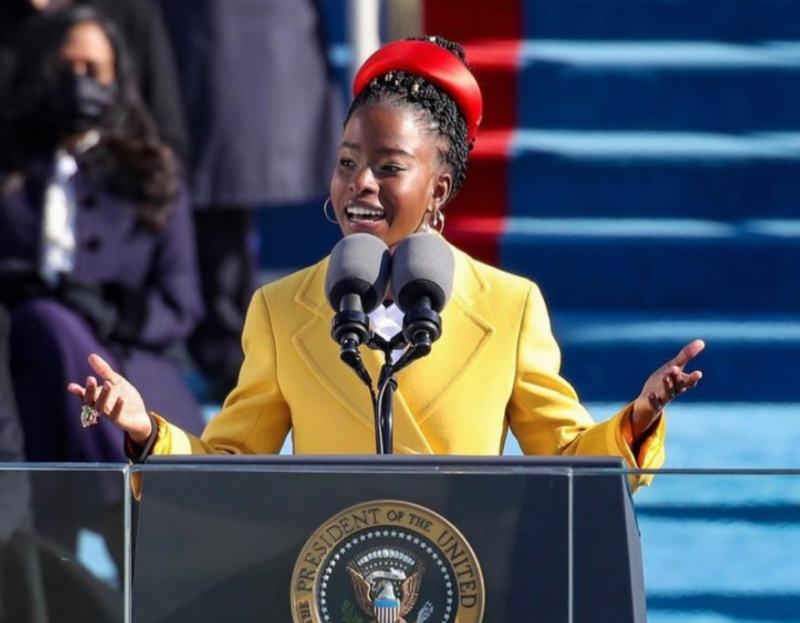The inauguration ceremony for Joe Biden and Kamala Harris gave poetry a moment in the sun when 22 year old National Youth Poet Laureate, Amanda Gorman captured the collective mood with her striking poem, The Hill We Climb.
In an interview following the inauguration – her national TV debut – Amanda told her audience, “Poetry is a weapon – it is an instrument of social change”. And with lines such as, “We will not be turned around or interrupted by intimidation because we know our inaction and inertia will be the inheritance of the next generation”, she certainly didn’t pull any punches. For Amanda, like many writers, poetry is about ‘truth-telling’. It is ‘brave’. Poetry gives its author the power to choose words carefully and use them to powerful impact. At Putney High School, we too take poetry seriously.
Last year, Daljit Nagra, in his final act as Putney’s then ‘Poet in Residence’ (after weeks of readings and inspiring poetry workshops) attended as guest of honour and judge our annual Poetry Festival. The festival is an eagerly awaited highlight of the school calendar where traditionally the school comes together to read, to perform, and to ponder the poetic entries of their peers.
This year the Poetry Festival will be, by necessity, an online affair, but the standard of entries shows us once again what a beloved artform this is. With almost 600 entries across the school, poetry not only has a fond place in our hearts, but it continues to go from strength to strength. Mr McLaughlin, organiser of the event knows that, more than an art form, “Poetry is a vital way for young people to engage with the world around them and enter into a dialogue that extends beyond the confines of their own lives. In these challenging times, more and more people have turned towards poetry as a form of reflecting on what we are collectively going through. While busy lives have somewhat been put on hold, the space poetry opens up for contemplation and meditation is more important than ever.”

